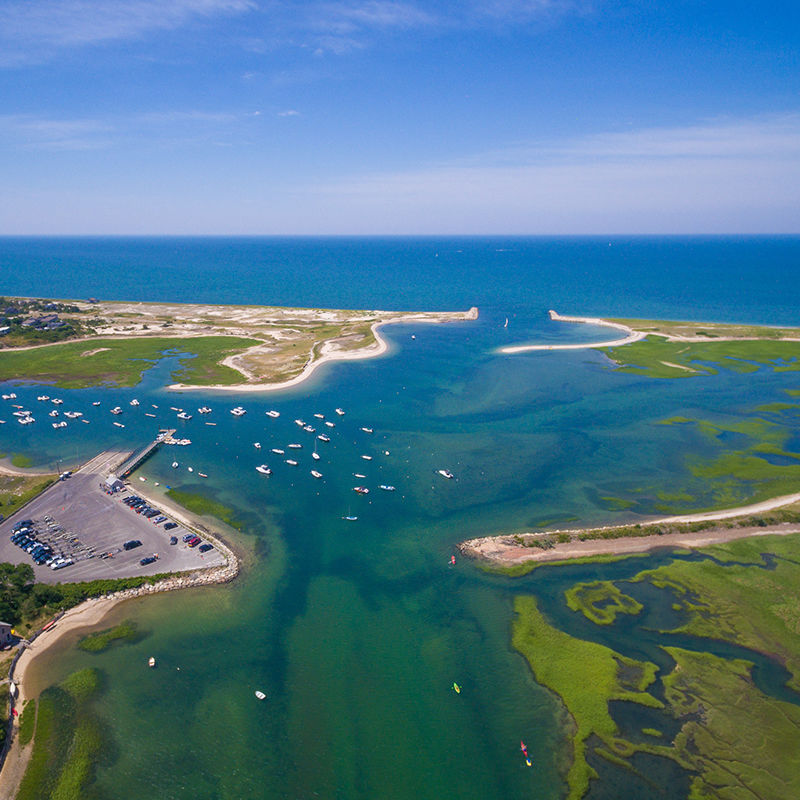


We provide a full scope of professional services for engineered coastal structures and waterfront infrastructure projects located in the marine environment.

Interaction between our hydrogeologists and engineers offers great value to our clients by providing them with a complete and thorough evaluation of the environmental and structural conditions of the project and, subsequently, selection of proper construction methods and materials. In particular, specifying a combination of high grade coatings allows us to extend the service life of the structures and minimize failures due to corrosion through electrolytic reactions.

With the forces of nature – storms, waves, and wind – rapidly eroding the beaches, an issue many property owners face is how to deal with the impact of coastal erosion. We provide risk assessment by evaluating site conditions, erosion rates, wave climate and other factors. Then, we follow the complex compliance requirements to analyze the various protection options available - from bank/beach nourishment and bioengineering (fiber rolls and other soft solutions) to hard solutions such as revetments and bulkheads. Finally, we design and permit appropriate solutions and provide on-site engineering services during construction to ensure that work is being executed as planned and permitted.

We assist coastal towns and owners of private marinas to maintain their channel and basin areas with maintenance dredging of sediment deposits. Our hydrographers determine ocean bottom elevation in relation to water depth and estimate the volume of material to be dredged to create navigable water. We evaluate dredging methodologies, dredge material make-up, dewatering and disposal alternatives, and long-term maintenance options and associated costs, with the goal of identifying the most efficient way to dredge and dispose of dredge material. Our established working relationships with regulatory agencies aid in the efficient processing of the necessary permits and licenses.

For projects situated below mean high water - such as dredging, harbor improvements, bulkheads/piers/docks construction, and environmental monitoring - it is necessary to know the depth of the sea floor. Coastal Engineering utilizes single beam sonar technology and RTK GPS systems to collect hydrographic survey data (soundings). The soundings are then processed and used to calculate proposed dredge and post-dredge volumes and generate bathymetric contour plots. Coastal Engineering also conducts routine hydrographic surveys to monitor seafloor depth changes caused by erosion and littoral transport of sediment over time. Other types of hydrographic surveys conducted by Coastal Engineering include eel grass surveys and tide gauge monitoring.

Coastal Engineering provides core sediment sampling analysis for offshore projects such as dredging, harbor improvements, bulkheads/piers/docks construction, and environmental monitoring. Core samples are obtained using a vibratory hammer system to drive a sampling tube into the seafloor. The sampled sediment is removed from the tube to visually observe the sediment characteristics. Smaller samples are then taken from the core sample to be further analyzed for grain size distribution (GSD), chemical composition, water content/ moisture percentage, and various other soil characteristics. The results help determine the type of sediment located in the specific seafloor area and whether there are any contaminants found within the sediment.

Each harbor needs to maintain accessible waterways, and Coastal stands ready to help. Having performed harbor management planning for municipalities, we are familiar with local regulations and environment. We start with evaluation/feasibility assessment of existing facilities and infrastructure to identify the issues of concern and outline mitigation options, implementation timeline, and costs. We proceed with engineering analysis and design of required improvements. To ensure long-term maintenance of the harbors, we make the necessary permit applications for dredging, establish Stormwater Pollution Prevention Plans, and perform runoff sampling and construction contract administration.